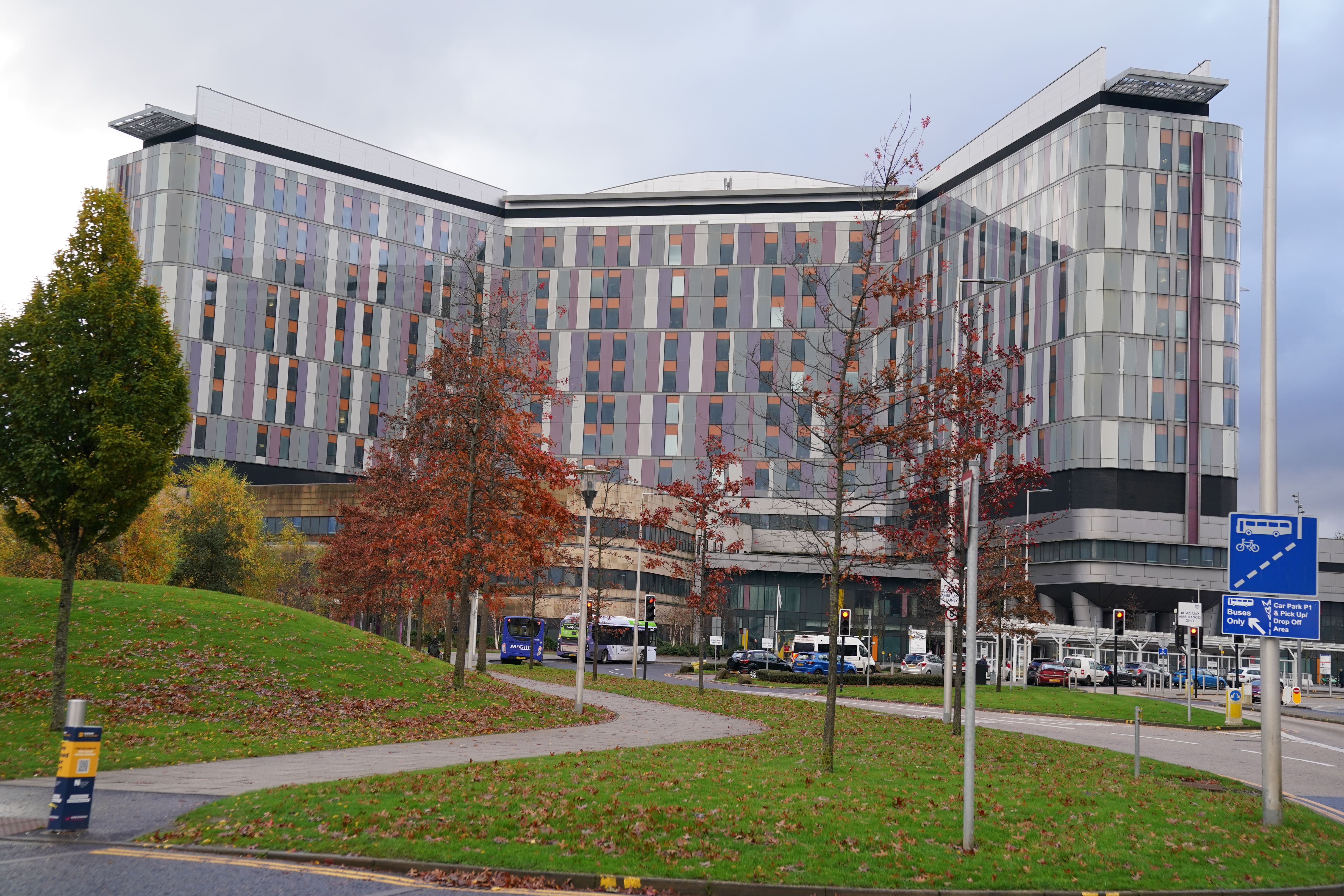Specialist ‘had to ask’ other experts about infections found in hospital
The Scottish Hospitals Inquiry is examining the construction of the Queen Elizabeth University Hospital in Glasgow.

Your support helps us to tell the story
From reproductive rights to climate change to Big Tech, The Independent is on the ground when the story is developing. Whether it's investigating the financials of Elon Musk's pro-Trump PAC or producing our latest documentary, 'The A Word', which shines a light on the American women fighting for reproductive rights, we know how important it is to parse out the facts from the messaging.
At such a critical moment in US history, we need reporters on the ground. Your donation allows us to keep sending journalists to speak to both sides of the story.
The Independent is trusted by Americans across the entire political spectrum. And unlike many other quality news outlets, we choose not to lock Americans out of our reporting and analysis with paywalls. We believe quality journalism should be available to everyone, paid for by those who can afford it.
Your support makes all the difference.A specialist in infection prevention with a career spanning 27 years has told an inquiry she “had to ask” other experts about some of the infections caught by children at a newly-built hospital.
Gaynor Evans, clinical lead for infection prevention and control with NHS Improvement North of England from 2013 to 2016, admitted she even had trouble pronouncing one of the infections detected at Queen Elizabeth University Hospital (QEUH) in Glasgow when she was tasked to review case notes.
She was giving evidence on Tuesday to the Scottish Hospitals Inquiry, which was launched in 2020 after two deaths were linked to infections, and is examining the construction of the QEUH campus.
Ms Evans, who told the inquiry her career in infection prevention started in 1997, was asked to review 85 cases relating to children who fell ill after being placed on wards within the hospital.
Some of these I had to ask about because I had never come across them before
Senior counsel to the inquiry Fred Mackintosh KC referred to previous discussions during earlier hearings about the concept of “unusual micro-organisms” found at QEUH and asked Ms Evans what should be understood about it.
She replied: “All I can tell you is that some of these infections I’ve not seen in my career.”
Asked about background rates of infection, Ms Evans said there should always be continuous efforts to reduce background rates.
“We shouldn’t be complacent and just accept that is the background rate,” she said. “You should be striving to reduce background infection, not accept that is the norm.”
If you find something and you think: 'I don't even know how to pronounce that', that's really unusual
When asked how this would apply to the kind of “micro-organisms” found at the QEUH, Ms Evans answered: “Some of these I had to ask about because I had never come across them before.
“If you get a novel organism – it should ring some alarm bells. Where did this come from? Have we seen it before? When was the last time we saw this?
“I think there some infections that they only had five in the whole year, previously, in the whole of Scotland, and yet we had three infections of the same organism in a very short period of time.”
Mr Mackintosh asked Ms Evans to take a look at a list of some of the “micro-organisms” found at the QEUH.
She told the inquiry there were at least four she had not come across before.
Shown a second table featuring more names, Ms Evans said there were another four she had not seen before.
She added: “If you find something and you think: ‘I don’t even know how to pronounce that’, that’s really unusual.”
The inquiry, being held before Lord Brodie in Edinburgh, continues.